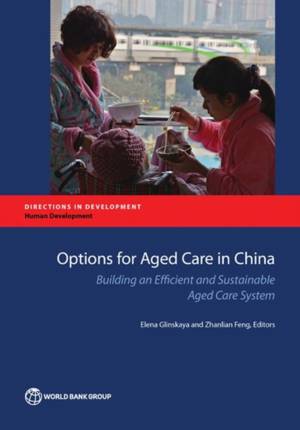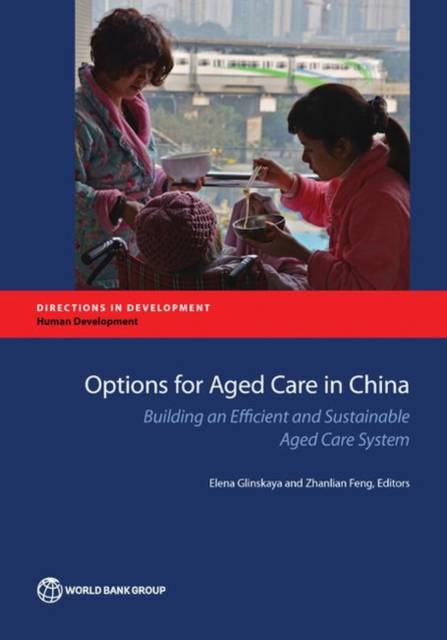
- Retrait gratuit dans votre magasin Club
- 7.000.000 titres dans notre catalogue
- Payer en toute sécurité
- Toujours un magasin près de chez vous
- Retrait gratuit dans votre magasin Club
- 7.000.0000 titres dans notre catalogue
- Payer en toute sécurité
- Toujours un magasin près de chez vous
Options for Aged Care in China
Building an Efficient and Sustainable Aged Care System
Elena Glinskaya, Zhanlian Feng
51,45 €
+ 102 points
Description
China is aging at an unprecedented rate. Improvements in life expectancy and the consequences of the decades-old family planning policy have led to a rapid increase in the elderly population. According to the United Nations World Population Prospects, the proportion of older people age 65 and over will increase by about one-fourth by 2030, and the elderly will account for about one quarter of the total population by 2050. Population aging will not only pose challenges for elder care but also have an impact on the economy and all aspects of society (World Bank, 2016a). The government is aware of the need to develop an efficient and sustainable approach to aged care. To this end, the General Office of the State Council issued the 12th Five-Year Plan for the Development of Aged Care Services in China and the Development Plan for a System of Social Services for the Aged (2011-2015). It is now in the process of formulating the 13th Five-Year National Plan on Aging, which will further elaborate and finalize the reform roadmap for 2016 to 2020. The Plan is expected to be finalized and launched by June 2016. The National Development and Reform Commission (NDRC) helped draft these plans and is now leading the development of policy measures for the provision of social services for the elderly. This volume has been prepared to support the translation of the broad ideas on aged care provision expressed in the 12th and 13th Five-Year Plans and other government plans into reality and to help the government tackle the challenges described above. It strives to identify a policy framework that fits the Chinese context and can be put in place gradually. Specifically, it aims to provide an up-to-date understanding of the evolving aged care landscape in China; review international experiences in long-term care provision, financing, and quality assurance and assess their relevance to China's current situation; discuss implications of current developments and trends for the future of aged care in China; and propose policy options based on available evidence and best practices.
Spécifications
Parties prenantes
- Auteur(s) :
- Editeur:
Contenu
- Nombre de pages :
- 346
- Langue:
- Anglais
- Collection :
Caractéristiques
- EAN:
- 9781464810756
- Date de parution :
- 19-09-18
- Format:
- Livre broché
- Format numérique:
- Trade paperback (VS)
- Dimensions :
- 178 mm x 251 mm
- Poids :
- 716 g

Les avis
Nous publions uniquement les avis qui respectent les conditions requises. Consultez nos conditions pour les avis.






